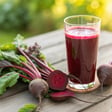Skin changes dramatically as we age. Finding the right moisturizer becomes increasingly important when dealing with dryness, thinning, and loss of elasticity.
Why Aging Skin Needs Special Attention
As we get older, our skin undergoes several significant changes that affect how it looks and feels. Production of natural oils decreases, cell turnover slows down, and collagen production diminishes. These changes leave skin more vulnerable to dryness, irritation, and visible signs of aging.
"After 60, the skin's barrier function weakens considerably," explains Dr. Melissa Harper, a dermatologist specializing in geriatric skincare. "This means moisture escapes more easily, and environmental irritants penetrate more readily."
According to a study published in the Journal of Dermatological Science, skin moisture content can decrease by up to 37% between ages 30 and 80. This dramatic change explains why products that worked perfectly in your 40s might leave your skin feeling parched in your 70s.
Best Moisturizer for 70 Year Old Skin: Key Ingredients
When shopping for the best lotion for elderly skin, certain ingredients stand out for their effectiveness:
Ceramides
Ceramides are lipid molecules that help form the skin's barrier and retain moisture. They're particularly valuable for aging skin, which has naturally declining ceramide levels.
"I always recommend ceramide-rich formulations to my older patients," notes Dr. Harper. "Products like CeraVe's Moisturizing Cream effectively replenish what time takes away."
Hyaluronic Acid
This powerful humectant can hold up to 1000 times its weight in water. For aging skin that struggles to retain moisture, hyaluronic acid is invaluable. It draws water into the skin and helps maintain hydration throughout the day.
Glycerin
A tried-and-true moisturizing agent, glycerin pulls water from the deeper skin layers and the air to hydrate the skin's surface. It's gentle yet effective for the best skincare for 80 year old individuals.
Peptides
These amino acid chains help stimulate collagen production, which naturally declines with age. Regular use of peptide-containing moisturizers can help improve skin elasticity and firmness over time.
Best Lotion for Aging Skin: Texture Matters

The ideal texture of your moisturizer depends on several factors, including climate, season, and personal preference. However, for aging skin, certain formulations generally work better than others:
Creams vs. Lotions
Creams are typically thicker and more emollient than lotions, making them ideal for very dry, mature skin. The best body moisturiser for older skin often comes in cream form, especially during winter months or in dry climates.
"I switched from lotions to creams last year when I turned 72," shares Elaine from Portland. "The difference was immediate – my skin finally felt comfortable again, not tight and itchy like before."
Lotions, being lighter, might be preferred during summer or in humid environments. The best skin lotion for warmer weather provides hydration without feeling heavy or greasy.
Best Skincare for Ageing Skin: Application Tips
How you apply your moisturizer can significantly impact its effectiveness:
- Apply to slightly damp skin (within 3-5 minutes after bathing) to lock in maximum moisture
- Use upward strokes to counteract the downward pull of gravity
- Pay special attention to particularly dry areas like elbows, knees, and feet
- Don't rush – give your skin time to absorb the product before dressing
"I've found that taking my time with application makes a huge difference," notes Gerald, 83. "I used to just slap it on quickly, but now I make it part of my morning ritual, and my skin looks much better for it."
What's the Best Lotion for Elderly Skin with Specific Concerns?
Aging skin often comes with specific concerns that require targeted solutions:
For Crepey Skin
Look for products containing alpha hydroxy acids (AHAs) like lactic acid, which gently exfoliate while moisturizing. Retinol-containing formulas can also help, though they should be introduced gradually as older skin can be more sensitive.
For Age Spots
Ingredients like niacinamide, vitamin C, and licorice extract can help fade discoloration while moisturizing. Remember that consistency is key – these ingredients work gradually over time.
For Very Sensitive Skin
The best lotions for aging skin with sensitivity issues typically avoid fragrances, essential oils, and other potential irritants. Brands like Vanicream and Cetaphil offer excellent options specifically formulated for reactive skin.
Best Skincare for 80 Year Old: Routine Matters
A consistent routine amplifies the benefits of even the best moisturizer:
- Morning application shields skin from daily environmental stressors
- Evening application supports the skin's natural overnight repair processes
- Weekly gentle exfoliation helps remove dead skin cells that can prevent proper moisturizer absorption
"I've been using the same moisturizer twice daily for almost a decade now," says Martha, 85. "My dermatologist is always surprised by how good my skin looks for my age. Consistency matters more than constantly chasing the newest product."
Disclaimer
This information is provided for educational purposes only and is not intended to replace professional medical advice. Consult with a dermatologist or healthcare provider before making significant changes to your skincare routine, especially if you have underlying skin conditions.
References
Remember, finding the best lotion for older skin often involves some trial and error. What works perfectly for one person might not be ideal for another. Listen to your skin, adjust as needed, and don't hesitate to consult a dermatologist for personalized recommendations.
Tags

About Rafael Mendoza the Author
Rafael Mendoza, an avid cyclist and urban planner, has dedicated over a decade to mapping out safe and efficient cycling routes in bustling city environments. His extensive research and hands-on experience make him a leading expert in transforming urban landscapes into cyclist-friendly spaces.
Recommended Articles
Meet The 2026 Honda Crv Ex Comfort And Versatility
Discover the comfort and versatility of the 2026 Honda CR-V EX, perfect for families and daily driving. Explore its new features and performance.
Introducing The 2026 Ford Explorer Power And Innovation
Discover the power and innovation of the 2026 Ford Explorer, featuring advanced tech, impressive engines, and family-friendly design for modern drivers.
5 Vintage Media Devices That Collectors Are Paying Big For
Explore 5 vintage media devices that collectors pay top dollar for, driven by nostalgia and a love for tech history.
5 Retro Gadgets That Quietly Shot Up in Value
Discover five retro gadgets that have increased in value, from vintage game consoles to first-generation iPhones, fueled by nostalgia and rarity.
4 Everyday Drinks Being Studied for Circulation Support
Explore 4 everyday drinks that may enhance circulation, including herbal teas, coffee, red wine, and beetroot juice. Discover their health benefits.




